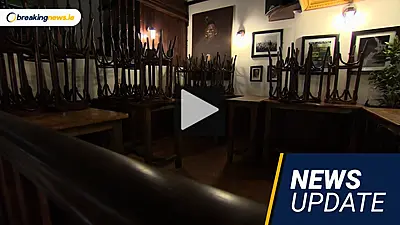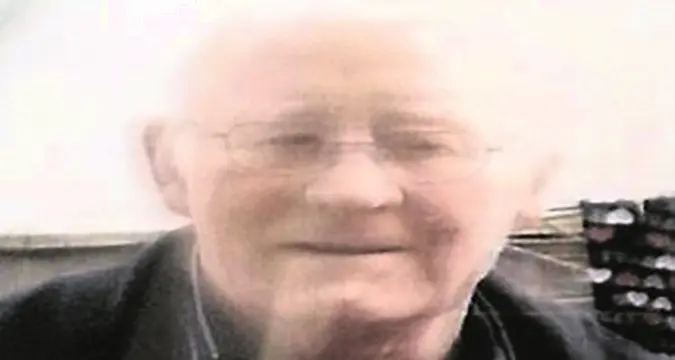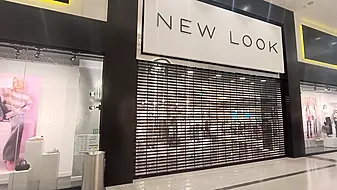Two men have had their convictions quashed for the murder of a 64-year-old Offaly man who was beaten to death with a baseball bat in his own home.
The Court of Appeal overturned the verdicts against the men on Tuesday, who have been in prison for almost five years, and substituted them with convictions for impeding the apprehension or prosecution of a person.
The substituted verdicts come under Section 7 Subsection 2 of the Criminal Law Act 1997, which makes it an offence to impede the apprehension or prosecution of a person believed or known to be guilty of an offence.
After delivering an oral judgement, Court President Justice George Birmingham, presiding with Justice John Edwards and Justice Isobel Kennedy, said the court would quash the murder convictions and send the two men back to the Central Criminal Court for sentencing on the substituted verdicts.
The court is expected to return a written judgement at a later date.
Thomas Dooley
Grandfather Thomas 'Toddy' Dooley suffered eight blows to his head, which shattered his skull, disfigured his face and left fragments of bone lodged in his brain, and two blows to his torso had fractured three of his ribs. His attackers had also tried to set him on fire after he died.
Matthew Cummins (27), of Churchview Heights, Edenderry, Co Offaly and his co-accused Seán Davy, (26), of Clonmullen Drive, Edenderry, and James Davy (30), of Thornhill Meadows, Celbridge, Co Kildare, had denied murdering Mr Dooley at Sr Senan Court in Edenderry on February 12th, 2014.
However, a unanimous jury found each man guilty of murder following a Central Criminal Court trial in 2016.
Trial judge Ms Justice Margaret Heneghan said that the murder was a "brutal, motiveless attack on this defenceless elderly man” before she sentenced each to life in prison on October 10th, 2016.
The trial heard that the three men got into Mr Dooley's home through a window at about 5.30am on a cold, snowy morning. Matthew Cummins had been in Toddy's house before and knew him as a kind man who would always say hello. Cummins climbed in a window and then opened another window to let the other two in.
Toddy, who was described as "soft" by one garda witness, was used to having young visitors at irregular hours and it appears he did not object. He sat down in his armchair, opened a can of Budweiser and drank with the intruders.
Equally guilty
The three drank with Toddy for a time but at some point Mr Dooley was beaten to death and attempts were made to set his dead body on fire. The State had argued that all three men were equally guilty and were involved in a "joint enterprise" to murder Mr Dooley.
The three men gave different accounts of what happened in the house. Matthew Cummins claimed that "out of the blue" Seán Davy walked up behind the 64-year-old and beat him on the back of the head with the bat, before coming around the armchair to continue the beating from the front.
Seán Davy claimed that James Davy was responsible for most of the blows, and that he himself struck Mr Dooley once, but "not full force". James Davy denied laying a hand on Mr Dooley, saying that Seán Davy beat him with the bat and Matthew Cummins kicked Mr Dooley but not with much force.
Seán Davey failed in a bid to have his conviction overturned in 2018. He had argued that he should have been tried separately rather than jointly with his co-accused. However, the Court of Appeal found that there had been a compelling case for putting all three on trial together.
His cousin, James Davey and the remaining co-accused, Mathew Cummins, made applications to the Court of Appeal in May to have their convictions overturned.
Aiding and abetting
Caroline Biggs SC, for Cummins, had argued that at no stage during the trial had the Director of Public Prosecutions (DPP) “pinned her colours to the mast” to say whether the case was one of joint enterprise or aiding and abetting.
“It was just throw enough mud at this case and it will stick,” she suggested. She also argued that the judge should have severed the indictment.
Ms Biggs had argued that her case was not properly put to the jury by the judge and that the law regarding joint enterprise was also not properly explained.
In her closing speech to the jury during the trial, Ms Biggs said that if Cummins had been accused of impeding the investigation into Mr Dooley's death, he would have pleaded guilty. She said there was no evidence he intended to kill or cause serious injury to Mr Dooley.
Counsel had said his presence when Mr Dooley was attacked was not enough to make him guilty of murder and added that the things the prosecution had accused him of - cleaning the scene and being present for the burning of the body - happened after Mr Dooley's death.
"You cannot convict a man for murder for an act he did when the person was already dead," she said, inviting the jury to find him not guilty of murder but guilty of impeding the arrest or prosecution of the principal offender.
Guilty mind
In her appeal submissions, she argued that the judge should also have made it absolutely clear to the jury that if a person’s act and ‘mens rea’ (guilty mind) occurred after the killing, the person would have been guilty of impeding the apprehension of another.
“Nowhere was that made clear,” she said.
James Dwyer SC, who represented James Davey, had told the appeal court: “I agree that this was one of those rare cases where they all blamed each other”.
However, he noted recent rulings that every application for severance of an indictment must be treated with care by a trial judge. “There was resistance in this case,” he said.
He also argued that there were aspects of the judge’s direction, which were confusing and misguided.
“The statement regarding joint enterprise was difficult to grasp,” he said. “It was incumbent on the trial judge to be very clear.”
Counsel said that the judge had directed the jury that it was only theoretical that it could acquit on the crime of impeding. He said that she should then have acceded to a requisition to redirect the jury that it could acquit on this if there was a reasonable excuse.
“The reasonable excuse advanced was that he was in fear,” he said of his client. “In his interviews, Mr [James] Davy said he was afraid by what he had seen.”
'Intrinsically involved'
Patrick Treacy SC had responded on behalf of the DPP. He said that the prosecution case was that ‘all three men were intrinsically involved in the savage murder’.

“I’m asking the court to have regard to the fact of how brutally this man was actually murdered,” he said. “They say it’s not of consequence that they were present to watch the brutality.”
He noted that there was blood on the walls, floor and ceiling, and that the victim’s head was misshapen, ‘such was the savagery of the beating’.
“They say that you can be there as either James Davey or Mathew Cummins and watch the brutality and in some way you are not a participant in that,” he said.
“The prosecution case is a whole plethora of facts showing how integrated these three men were in the execution of this barbaric killing,” he said







